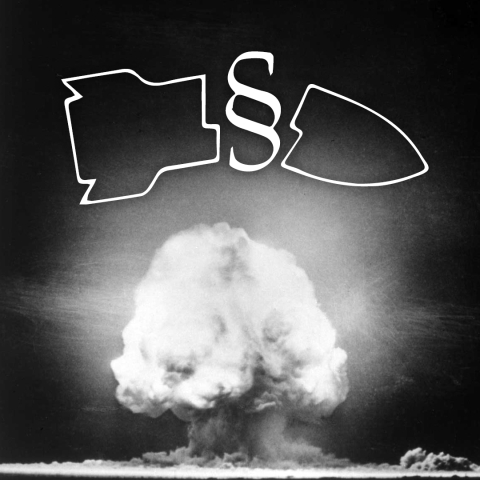
The following is the text of a letter to Dr. Bonnie D. Jenkins, the Under Secretary of State for Arms Control and International Security, delivered on June 15 by the International Association of Lawyers Against Nuclear Arms.
The following article was published in the July-August 2023 issue of NewsNotes.
Dear Under Secretary Jenkins:
We strongly support President Biden’s reaffirmation of willingness to negotiate nuclear arms control issues, including a successor to New START, whenever the Russian Federation is willing to do so. However, because of Russia’s irresponsible refusal to meet, negotiations remain at a standstill. Meanwhile, the danger is increasing, and precious time is being lost. We urge the Administration to take bold affirmative steps to break the current impasse.
For several years, scientists and technical experts have been warning that developments in military technology are increasing the danger of nuclear war by accident or miscalculation. The effect is to shorten the window of time in which an effective arms control agreement may be negotiated. As noted in a recent article by former Under Secretary of State Gottemoeller, “with advances in sensing technology states may soon be able to track and target their adversaries’ nuclear missiles. Advances in big data analysis and quantum computing may enable real time tracking and targeting of mobile nuclear missiles and in the future even submarines.” She notes that with such real time tracking and targeting “even the stealthiest and most well protected nuclear weapons may become vulnerable in the future.” These facts have grave implications for the future of nuclear arms control negotiations: as the article further noted, “[c]onfidence in the survivability of second strike capabilities...has been a strong factor in maintaining the stability [sic] of mutual deterrence.” Clearly “stability” is at best a relative term here, since the mutual deterrence system has several times brought us within minutes of accidental nuclear war, but it is certainly true that increases in the perceived vulnerability of second strike capabilities will worsen the risk of catastrophic escalation in response to a false alarm. It is critically important to break the logjam in negotiations before much more time is lost.
In a 2023 paper, the UN Institute for Disarmament Research has noted that arms control progress has sometimes been made, in the absence of formal treaties, through informal agreements, reciprocal unilateral initiatives, and confidence-building statements. For such progress to occur, however, the parties must at least be communicating. (The UNIDIR paper also notes that progress can be facilitated by nongovernmental “expert discussions;” we understand that U.S. scientists have recently attempted to initiate such contacts only to find Russian and Chinese counterparts apparently unwilling to talk without government sanction.) One possible approach might be to seek a different venue.
It has been suggested that the United States could re-start the process by seeking to activate the “underutilized” P5 process, a forum for the five nuclear weapon states recognized in the Nuclear Non-Proliferation Treaty (NPT) to explore confidence building measures as to their nuclear forces. The author notes that a Chinese spokesperson has recently said the five NPT nuclear weapon states “should further enhance communication on such issues as strategic stability and reduction of nuclear risks.” In his recent address to the Arms Control Association, National Security Advisor Sullivan also noted that the P5 process might be a possible vehicle for progress, and this idea should be pursued. Even if such talks did not immediately address specific arms limitations, they could pave the way for further progress.
Other alternatives should be explored. Both international law and the catastrophic consequences of failure require that efforts be continued and expanded until obstacles are overcome. The International Court of Justice, in its historic 1996 advisory opinion, unanimously held that under Article VI of the NPT “[t]here exists an obligation to pursue in good faith and bring to a conclusion [emphasis supplied] negotiations leading to nuclear disarmament in all its aspects under strict and effective international supervision.” The danger is too great, and the time is too short, to allow Russian obstruction to have the final word.
Faith in action
Ask your U.S. Representative to support H. Res. 77, a resolution that calls on the United States to embrace the goals and provisions of the Treaty on the Prohibition of Nuclear Weapons (TPNW) and to adopt Back from the Brink’s policy recommendations for preventing nuclear war. https://mogc.info/HRes77
Photo of the Trinity nuclear bomb test mushroom cloud, public domain, and the logo for International Association of Lawyers Against Nuclear Arms.
